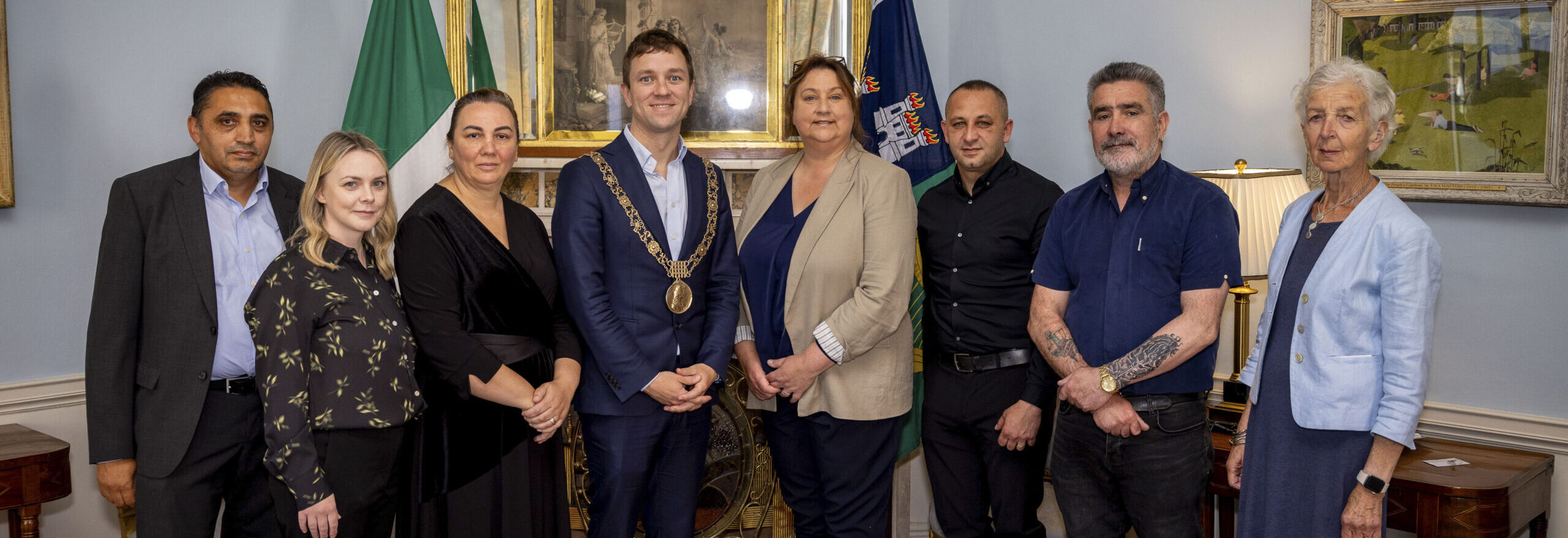Today, Wednesday 18th September, 2024, 11am, at the Mansion House, Dublin 2, Pavee Point Traveller and Roma Centre in association with the Department of Children, Equality, Disability, Integration and Youth (DCEDIY) hosted ‘Never Again – Recognition, Remembrance and Reflection on the Roma Genocide’, a national event to remember the 80th Anniversary of the Roma and Sinti Genocide during the Nazi era.

“Holding this event for the 80th anniversary of the Roma Genocide, the Porajmos, which means devouring in our language, is very important for our community.” said Gabi Muntean, Roma Community Worker at Pavee Point. “Pavee Point has always marked this occasion and now it is more important than ever. We need to keep this history alive, as it reminds us of the dangers of racism and hatred, and the need to stand together.”
Speaking at the event, Minister of State at the Department of Children, Equality, Disability, Integration and Youth, Anne Rabbitte T.D. said “Roma people continue to experience misunderstanding and intolerance, and are still facing racially motivated hate crimes, persecution and discrimination. The Government is committed to tackling racism and discrimination in all their forms, including anti-Roma and anti-Traveller racism and discrimination, through the ongoing implementation of the National Action Plan on Racism [NAPAR], and the recently launched National Traveller and Roma Integration Strategy 2024-2028 [NTRIS II].”

Opening the event, Lord Mayor of Dublin, Cllr. James Geoghegan, said, “The Roma Genocide is sometimes known as the “Forgotten Holocaust” and yet it is estimated that at least 500,000 European Roma were killed during World War II. There are at least 16,059 Roma living in Ireland and today’s event in the Mansion House in Dublin remembers this hugely dark chapter of the Roma people’s history.”
Roma live in every county in Ireland, including third and fourth generation Roma. A needs assessment of Roma living in Ireland (Roma in Ireland, 2018) found that 80% of Roma living in Ireland had experienced discrimination.
Speaking about the event, Rudolf Simonic, Roma Community worker said, “Many Roma, including our own children, are not aware of the genocide and its impact. It is crucial we keep the memory of these atrocities which have shaped our identity alive. Everyone needs to know about the genocide of Roma and Sinti and it needs to be included in lessons on the Holocaust and the Nazi era.”

‘Never Again’ kicked off with the Roma National Anthem ‘Djelem, Djelem’ and saw a range of speakers present on the day. Mr. Christian Pfeil, a German-Sinti survivor of Nazi terror, recounted his own personal experience of survival.

Dr Ethel Brooks, Professor of Women’s, Gender and Sexual Studies at Rutgers University spoke to the contextualisation on the Roma genocide. She opened her address with a moving letter she wrote to Amalie Baumann-Blach, who was murdered in Auschwitz on June 26, 1944.

An estimated 500,000 Roma and Sinti were murdered in concentration camps or by mobile death squads during the Nazi era. Another 500,000 to one million were displaced. The Genocide of Roma and Sinti during the Nazi era is an area which has not been well studied, and many remain unaware of the suffering that Roma people had to endure. They were one of the key groups targeted for complete elimination by the Nazis and talk of a “final solution” to the “gypsy question” was documented as early as December 1938.
Most Roma victims were murdered in mass execution programmes, with very few records kept of numbers or names.
A commitment to supporting an annual commemorative event to mark the Roma genocide is an action in the second National Traveller and Roma Inclusion Strategy Action Plan (2024-2026), which was launched earlier this year.
See below links to previous Roma Remembrance Days:

